introduction
AWeber is one of the longest-standing email marketing platforms, known for its simplicity and effectiveness in helping businesses automate email campaigns. It offers tools to create and manage mailing lists, send newsletters, and track email campaign performance. This introduction provides an overview of what the blog will cover, including its features, pricing, and comparisons to other email marketing services.
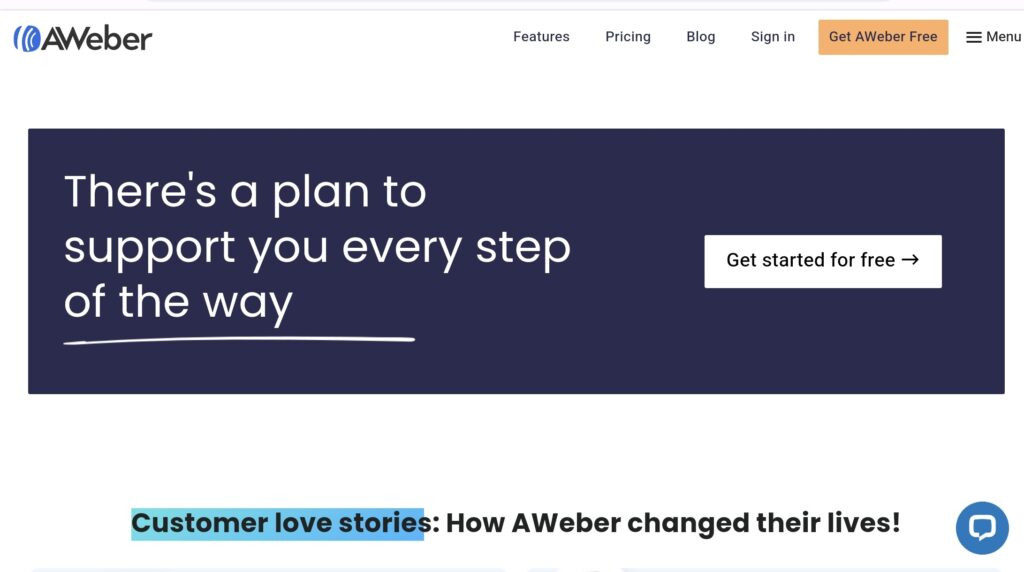
Ease of Use of AWeber
AWeber is designed for ease of use, especially for beginners in email marketing. Its drag-and-drop email editor makes it simple to build professional emails quickly. Compared to tools like Mailchimp or Get Response, AWeber is often considered more beginner-friendly, though it may lack some of the advanced features that other platforms offer.
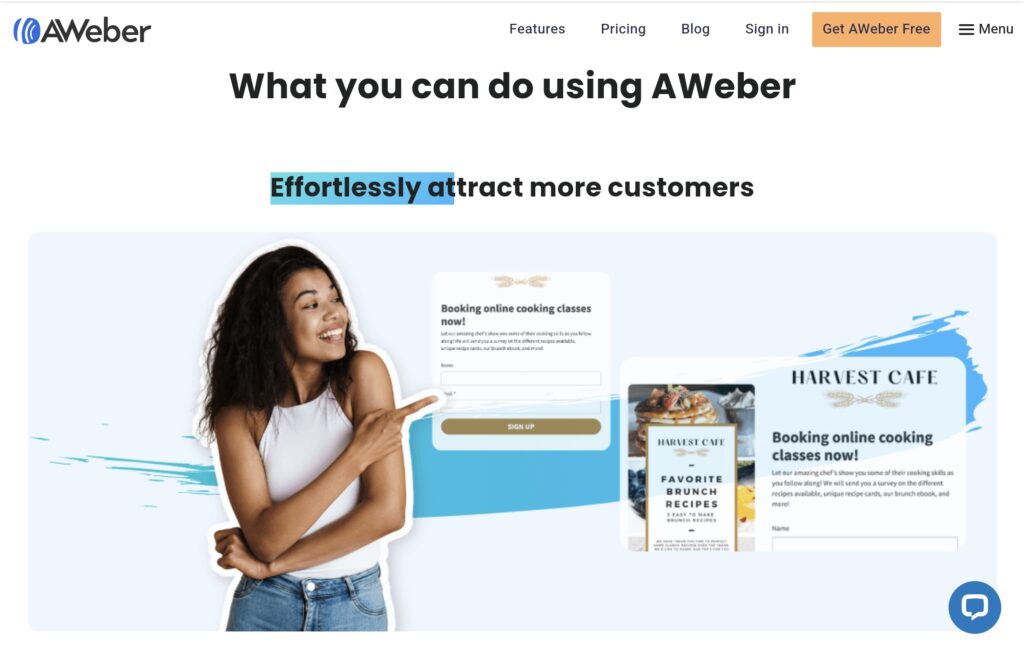
Email Templates and Design Flexibility AWeber
AWeber offers a variety of pre-designed email templates that can be customized to fit your brand. Although the templates are professional and mobile-responsive, some users may find them a bit limited in design flexibility compared to more visually-focused platforms like Mailchimp. Still, AWeber’s simplicity makes it easy to get started without much design experience.
Pricing and Subscription Plans of AWeber
AWeber offers two primary pricing models: a Free plan (for up to 500 subscribers) and a Pro plan that unlocks more features. The pricing is competitive, especially for small businesses, though platforms like Mailchimp offer slightly more generous free tiers. AWeber’s pricing is straightforward, but it can become costly as your list grows.

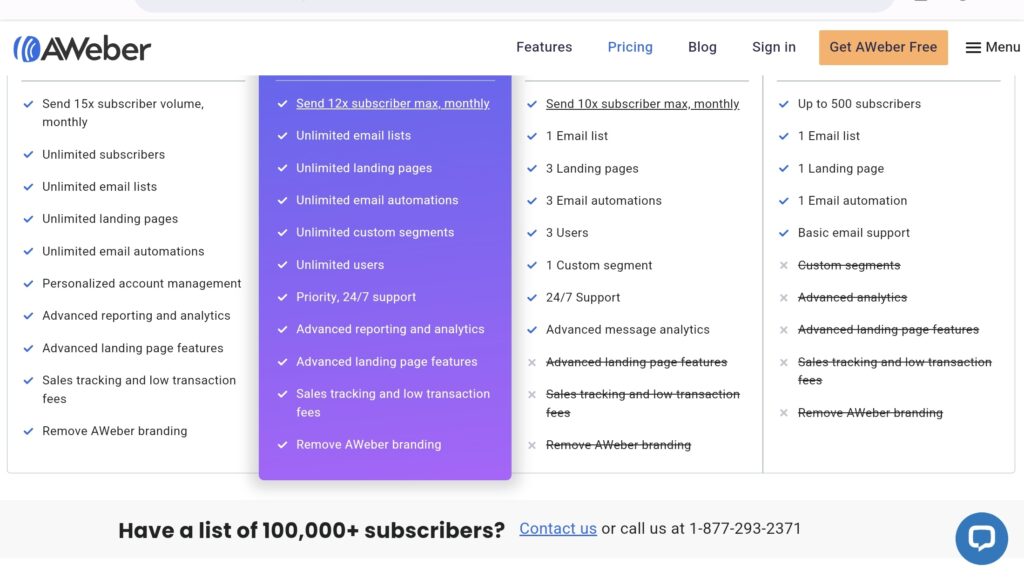
Automation Features AWeber
AWeber provides essential automation features, such as autoresponders, email sequences, and tagging. These allow you to set up automated email workflows based on user actions. While AWeber offers solid automation tools, platforms like Active Campaign or GetResponse might provide more advanced features such as dynamic segmentation and more complex automation paths.
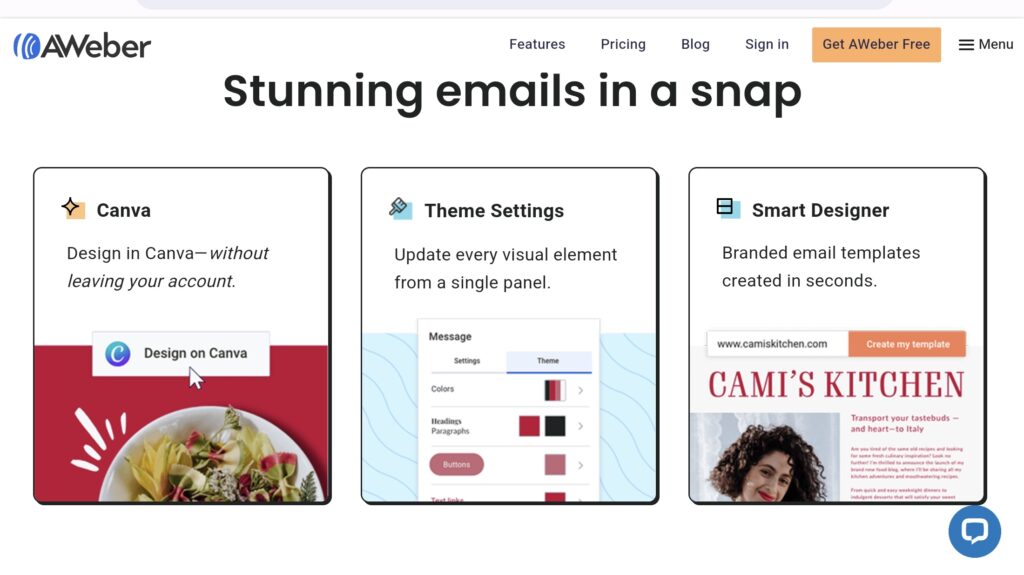


Customer Support and Resources AWeber
AWeber shines when it comes to customer support. They offer 24/7 live chat and phone support, which is uncommon among email marketing platforms. The platform also provides extensive tutorials, webinars, and guides to help users get the most out of their tools. This is a clear advantage over competitors like Mailchimp, which offers limited phone support.

Integrations and Third-Party Tools AWeber
AWeber integrates with a wide variety of third-party tools, including WordPress, Shopify, and PayPal, making it easy to connect with e-commerce platforms and CRM systems. This is comparable to competitors like Mailchimp and Active Campaign, but AWeber excels in its simple integration process, which can be a plus for small business owners.
Deliverability and Performance AWeber
One of AWeber’s strongest points is its excellent email deliverability rates. The platform ensures that emails land in subscribers’ inboxes, helping businesses maintain good relationships with their audiences. This is a key factor when comparing with other platforms like Mailchimp or Constant Contact, as email deliverability directly impacts campaign success.
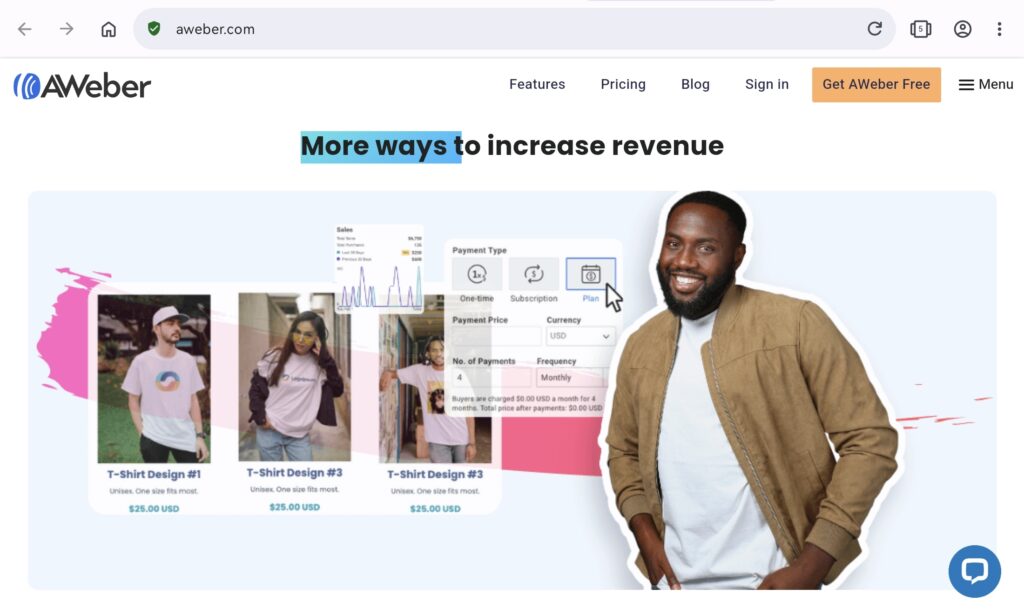
Pros and Cons of Using AWeber
Pros:
- Simple, user-friendly interface
- Strong deliverability rates
- 24/7 customer support
- Reliable automation features
Cons:
- Limited design flexibility
- Pricing can become expensive as your list grows
- Fewer advanced automation features than competitors
- Where to Add Images: A pros-and-cons table could summarize this section well.
conclusion
AWeber is a strong email marketing platform, especially suited for small businesses and beginners looking for simplicity and reliable customer support. While it may not have all the advanced features of its competitors, its ease of use, pricing, and solid automation tools make it a worthwhile choice for many. For those prioritizing deliverability and customer support, AWeber stands out as a reliable option.
